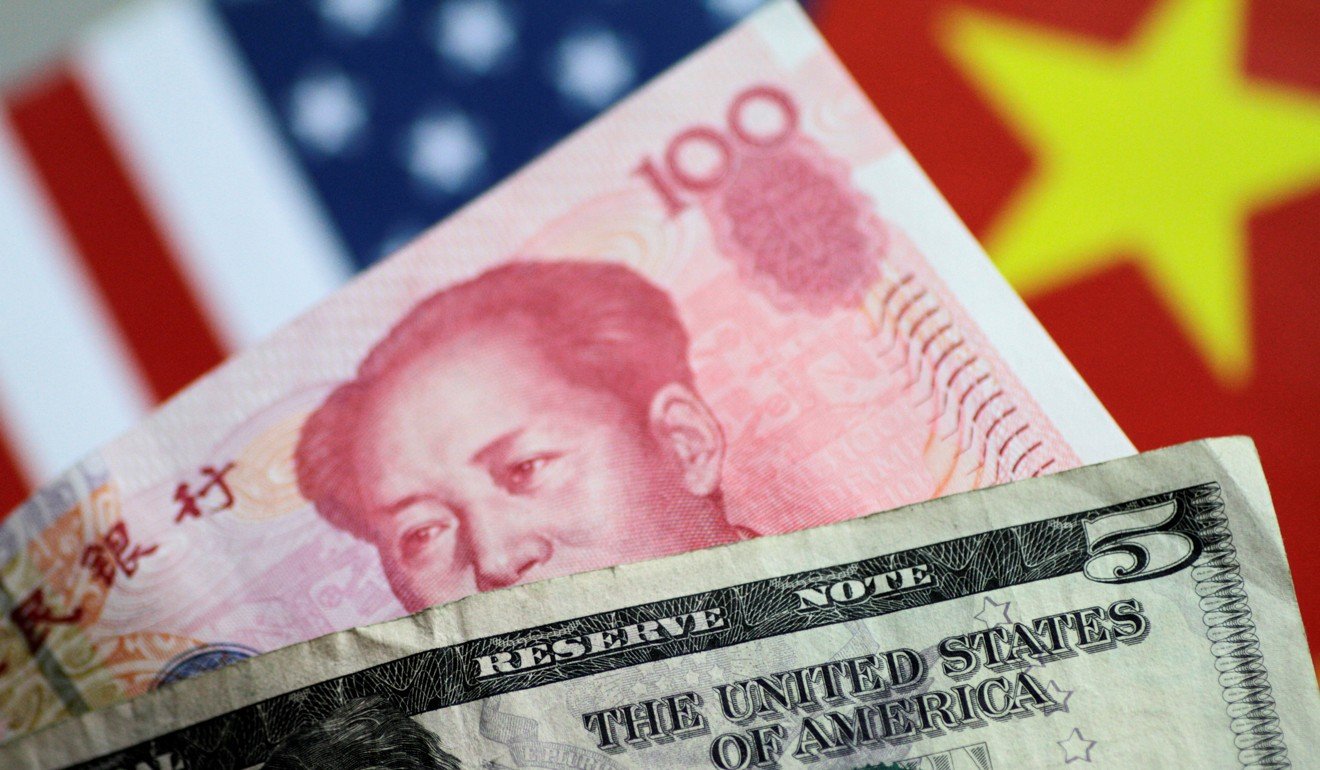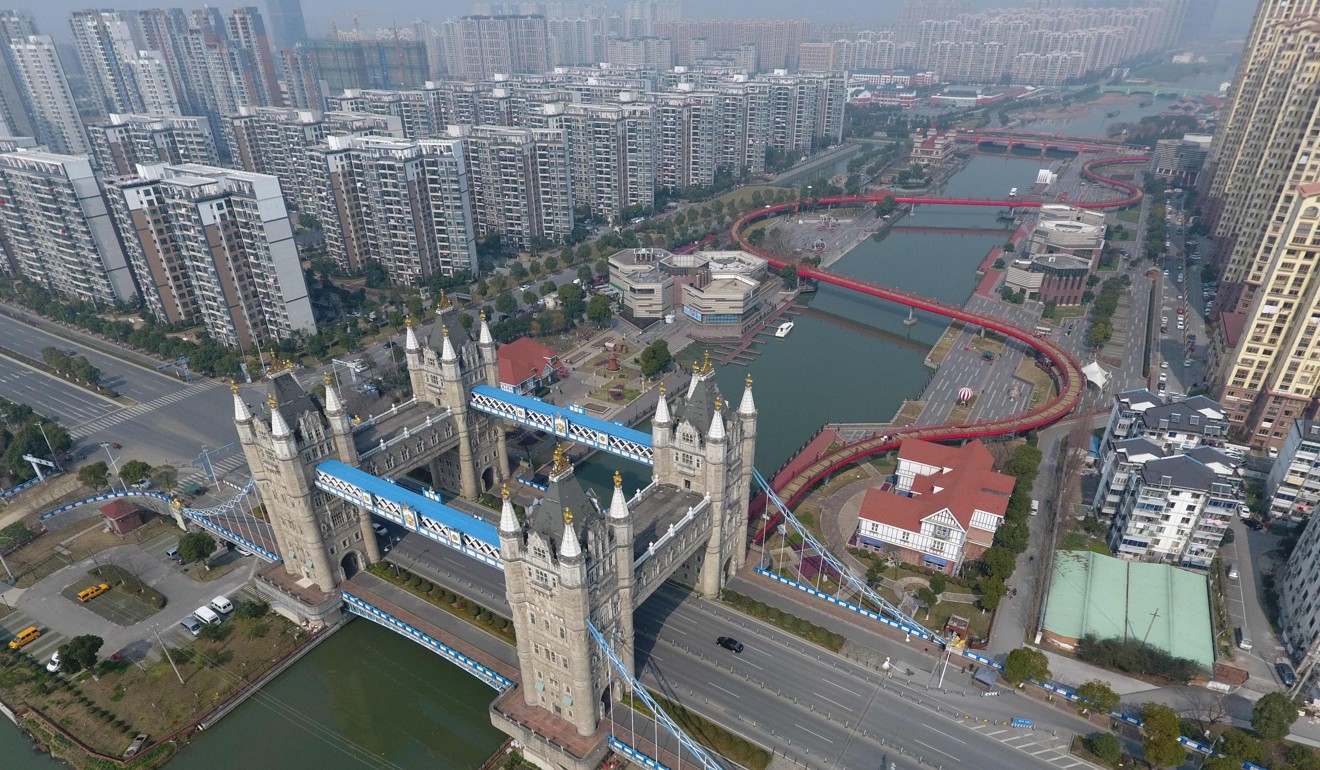
Britain seems to be setting itself up as ‘another Hong Kong’
- London and Hong Kong are likely to become financial and logistical windows on the world for China
- London trading volumes in renminbi have reached an average of US$75 billion daily since October, according to the Bank of England

The City of London’s “charm offensive in the race for renminbi” has paid off, with London daily trading in renminbi now exceeding that in euro, the Financial Times reported. But this is only half the story, which is also about life after Brexit for Britain, and about the nation’s role in China’s “Belt and Road Initiative”.
Some have suggested that post-Brexit Britain could become “another Singapore” by modelling itself on successful island economies. But in reality Britain may be in process of becoming another Hong Kong. The key is that both Britain and its former colony are situated at either end of the Belt and Road project.
As Kent Calder, director of the Reischauer Centre for East Asian Studies at Johns Hopkins University in Washington observed perceptively to me in a conversation a couple of years ago, London and Hong Kong are likely to become financial and logistical “windows on the world” for China.
The term “window” is appropriate, because it has the connotation of a place with liberal supplies of credit. But in the case of London and Hong Kong, they are not just centres of credit but, to an increasing extent, renminbi windows also – key to China’s needs.
According to the Financial Times report (based on data from payments company Swift), some 36 per cent of all external renminbi transactions were conducted in Britain in December 2018, and according to the Bank of England, London trading volumes in renminbi reached an average of US$75 billion daily as from October last year.

But it is the nature, more than the volume, of transactions that matters. They will not only be about foreign exchange trading, but about a whole range of capital market activities in which China will continue to raise its international profile, and the renminbi become more internationalised.
This is already happening in international bond issuance. HSBC issued the first renminbi bonds outside Greater China in London in 2012, and China made its first sovereign bond issue there in 2016.
China is likely to rely on international bond markets for financing belt and road projects to a degree that is perhaps not generally realised. And the markets of choice in this respect will be London and Hong Kong, rather than New York or European centres, or Singapore for that matter.
Tokyo made a formal bid to attract such business some time ago, but according to veteran Japan analyst Jesper Koll, it was not successful. Assessing the likely size of belt and road-linked bond issuance is not easy, because estimates of the project’s costs are somewhat hazy still.
A figure of US$1 trillion has been mentioned, but this can only be a fraction of what will eventually be required. China will use domestic funds only to a limited extent and is designating foreign aid now in renminbi, according to Yuxing Xing at Tokyo’s Graduate Research Institute of Policy Studies.
Since the belt and road initiative is not a legal entity in its own right, either the government or some other legal entity in China is likely to be the borrower for its projects. Those could include the Asian Infrastructure Investment Bank, which now enjoys international triple-A credit ratings,
During an interview I had with AIIB chairman Jin Liqun soon after the bank opened, he stressed that only part of its activities would be directly related to belt and road. Nevertheless, it is widely perceived that the AIIB will become a major presence in international bond markets, and that means London and Hong Kong chiefly.

The stronger China’s financial relationship with London grows, the more likely it is that commercial and trade relationships will grow (except in the unlikely event that Britain joins US President Donald Trump’s trade wars), And that may help to shape Britain’s post Brexit strategies.
With European relationships strained by Brexit, and with the supposed “special relationship” between Britain and the US rendered uncertain (to say the least) while Trump is in the White House, Britain will look for friends.
Meanwhile, if China is able to offer the lure of civil engineering, construction and production contracts (not to mention logistical, technical and financial sector work) related to belt and road to a Britain that is hungry for post-Brexit orders, that too is likely to influence British attitudes.
Anthony Rowley is a veteran journalist specialising in Asian economic and financial affairs